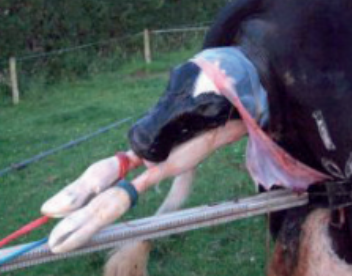
Before I went to medical school, I thought veterinary medicine might be a better calling to live in a small Idaho town. For that was my dream, a small town with a stable economy to raise our kids. I remember the long drives around Council Valley and beyond in Fred Stovner’s 1960 ¾ ton 4WD International pickup on calving calls. He was the local vet for Council. We would talk a lot about animals and health and God. Then, when we got to the ranch, his language changed. There were more, “She don’t” and “ain’t” and other kinds of speech, different than we shared in the dark front seat. I asked him about this.
“Don’t they think you are talking down to them?”
He chuckled as the steering wheel shimmied over the ruts. “They don’t want to think you think you are better than them.”
Martha (my wife) to this day points out to me when I switch into talking “Ideho”. That’s her term.
There is a strong anti-intellectual feeling in this rural state.
It’s almost like you have a different skin color. If the regular folks I run into as a doctor or representative start to think I’m coming off as superior, the game is over. If I can’t explain to them in common sense language why they need to stop drinking or smoking or lose weight, or vote for me, then I’m just a know-it-all with no standing. We need to share a language.
I want to thank State Senator Steve Thain for pointing this out this week. He said in an interim committee meeting discussing the role of Public Health Districts, “Listening to experts is an elitist approach.” He went on: “I’m also fearful that it leads to totalitarianism, especially when you say well, we’re doing it for the public good. America was founded on the idea that people weighed their own risks, did what they thought was best for their own interests. … The role of experts should be to give us the best information they have, and we should weigh it. They should never set policy.”
He is so right. Having some Ivory Tower elitist telling me what to do with my life is a nightmare.
But, every day, people come to me with their fears, their struggles with their health. How should I convince them to change their behavior?
Public Health in Idaho is distributed to districts. The public health commissioners in each district are mainly county commissioners, elected by us, and they then throw in a couple “health professionals”, a doctor or a nurse who live in the district. The “professionals” must be approved by the elected commissioners to serve. This body then studies the landscape and makes recommendations, from upgrading a local sewer district or shutting down a polluted restaurant. The recommendations from the legislative interim committees this last week went along the lines of Senator Thain’s comments. The vote, while not unanimous, was to remove Public Health districts from having authority to shut down a school or university in the face of this Covid pandemic. The committee would rather the authority to limit any activity rested on the shoulders of the elected school board members or State Board of Education.
Us “experts” felt a swift kick to the groin. We should. We are not speaking the language of risk.
Fred Stovner would sometimes be called to deliver a heifer who couldn’t get her first calf out. He would pose, “Well, we could do a c-section, and that will cost you $100, or I could try to pull her.”
“I done pulled.” The rancher would say.
Fred would reach in and check the heifer. “I could get the calf out, but it might kill the calf. It might kill the heifer. You want I should try?”
The rancher would kick dirt and decide. That’s the kind of decision making we need right now.
